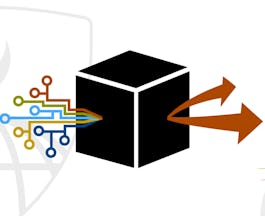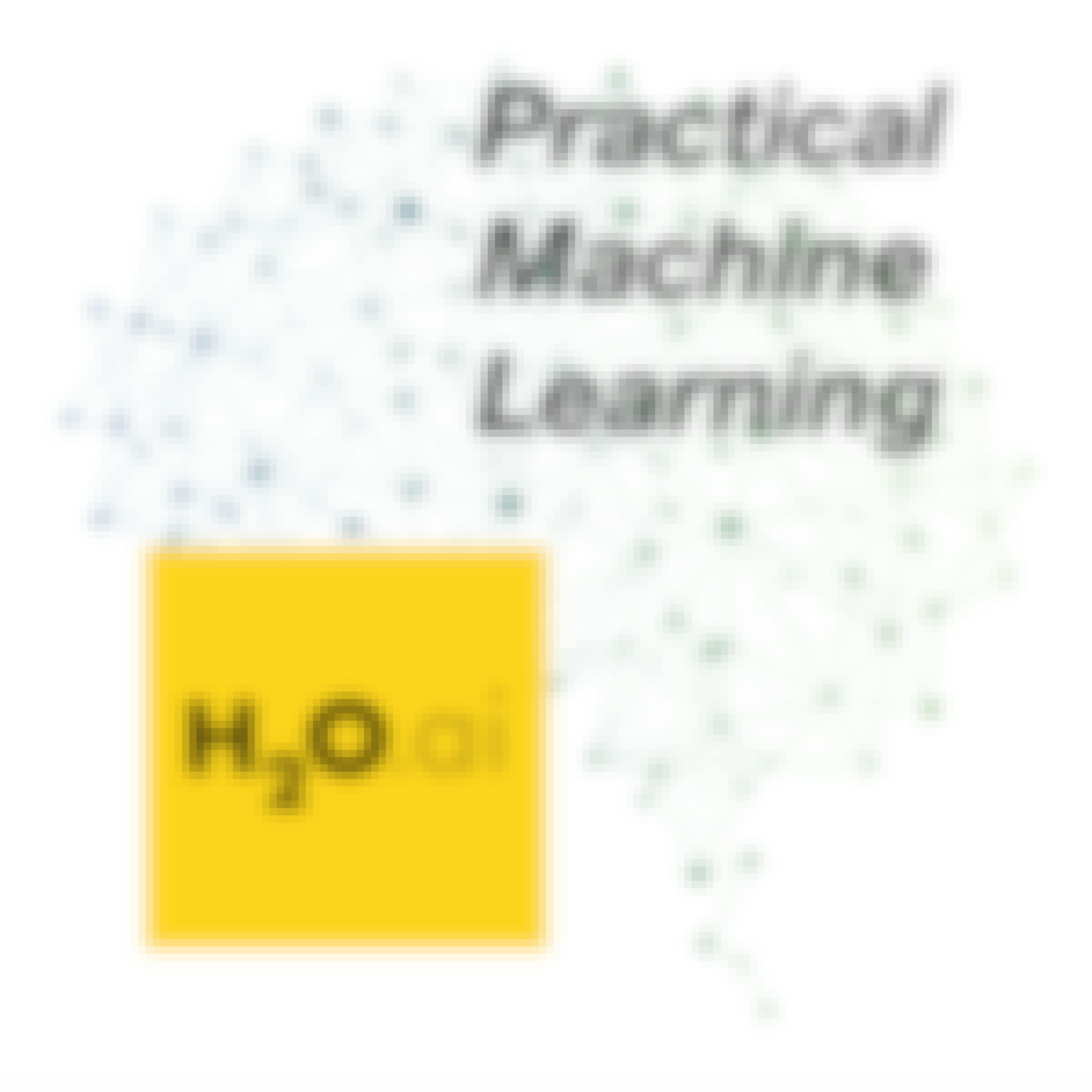Filter by
The language used throughout the course, in both instruction and assessments.
Results for "support+vector+machine+(svm)"

Skills you'll gain: Time Series Analysis and Forecasting, Deep Learning, Statistical Analysis, Predictive Modeling, Statistical Methods, Forecasting, Jupyter, Data Cleansing, Applied Machine Learning, Exploratory Data Analysis, Pandas (Python Package), NumPy


University of Minnesota
Skills you'll gain: Machine Learning Algorithms, Applied Machine Learning, Machine Learning, Dimensionality Reduction, Artificial Intelligence and Machine Learning (AI/ML), Algorithms, Linear Algebra


Johns Hopkins University
Skills you'll gain: Predictive Modeling, Machine Learning Algorithms, Statistical Machine Learning, Feature Engineering, Supervised Learning, Classification And Regression Tree (CART), Applied Machine Learning, Decision Tree Learning, Machine Learning, Random Forest Algorithm, Regression Analysis, Data Processing, Data Transformation

Skills you'll gain: MongoDB, NoSQL, Databases, PostgreSQL, Relational Databases, SQL, Applied Machine Learning, Database Management Systems, Artificial Intelligence, Database Architecture and Administration, Database Management, Natural Language Processing, Apache Cassandra, Text Mining, Node.JS, Image Analysis, Data Import/Export, Unstructured Data, Data Processing, Data Storage Technologies

Skills you'll gain: Google Cloud Platform, Data Strategy, MLOps (Machine Learning Operations), Tensorflow, Machine Learning, Applied Machine Learning, PyTorch (Machine Learning Library), Artificial Intelligence and Machine Learning (AI/ML), Data Ethics, Big Data, Data Processing, Continuous Deployment


LearnQuest
Skills you'll gain: Feature Engineering, Bioinformatics, Exploratory Data Analysis, Random Forest Algorithm, Pandas (Python Package), Scikit Learn (Machine Learning Library), Applied Machine Learning, Data Manipulation, Data Processing, Dimensionality Reduction, Data Cleansing, Keras (Neural Network Library), Data Transformation, NumPy, Classification And Regression Tree (CART), Tensorflow, Artificial Neural Networks, Data Analysis, Deep Learning, Predictive Modeling

Skills you'll gain: Unsupervised Learning, Deep Learning, Anomaly Detection, Machine Learning Algorithms, Applied Machine Learning, Machine Learning, Supervised Learning, Decision Tree Learning, Predictive Modeling, Random Forest Algorithm, Data Import/Export, Artificial Neural Networks, Data Modeling, Data Manipulation, Statistical Modeling

Skills you'll gain: Classification And Regression Tree (CART), Random Forest Algorithm, Decision Tree Learning, Deep Learning, Applied Machine Learning, Artificial Neural Networks, Artificial Intelligence and Machine Learning (AI/ML), Predictive Modeling, Supervised Learning, Computer Vision, Machine Learning, Natural Language Processing

Skills you'll gain: Unsupervised Learning, Generative AI, Supervised Learning, Deep Learning, Applied Machine Learning, Artificial Intelligence and Machine Learning (AI/ML), Reinforcement Learning, OpenAI, Predictive Modeling, Machine Learning Algorithms, Image Analysis, Artificial Intelligence, Artificial Neural Networks, Machine Learning, Feature Engineering, Unstructured Data, Business Logic, ChatGPT, Dimensionality Reduction, Data Modeling

Skills you'll gain: Development Environment, Text Mining, OpenAI, Artificial Intelligence, Database Management, Artificial Intelligence and Machine Learning (AI/ML), Databases, Unstructured Data, Data Storage Technologies


Alberta Machine Intelligence Institute
Skills you'll gain: MLOps (Machine Learning Operations), Business Operations, Machine Learning, Ethical Standards And Conduct, Operational Analysis, Applied Machine Learning, Business Strategy, Technology Strategies, Production Planning, Data Maintenance, Risk Mitigation, System Monitoring, Systems Integration, Stakeholder Communications


Sungkyunkwan University
Skills you'll gain: Machine Learning Algorithms, Decision Tree Learning, Classification And Regression Tree (CART), Unsupervised Learning, Machine Learning, Supervised Learning, Python Programming, Algorithms, Bayesian Statistics, Probability
In summary, here are 10 of our most popular support+vector+machine+(svm) courses
- Specialized Models: Time Series and Survival Analysis: IBM
- Matrix Factorization and Advanced Techniques: University of Minnesota
- Practical Machine Learning: Johns Hopkins University
- Vector Database Fundamentals: IBM
- How Google does Machine Learning em Português Brasileiro: Google Cloud
- AI for Scientific Research: LearnQuest
- Practical Machine Learning on H2O: H2O.ai
- Build Decision Trees, SVMs, and Artificial Neural Networks: CertNexus
- AI and Machine Learning Algorithms and Techniques: Microsoft
- Learn Embeddings and Vector Databases: Scrimba
















